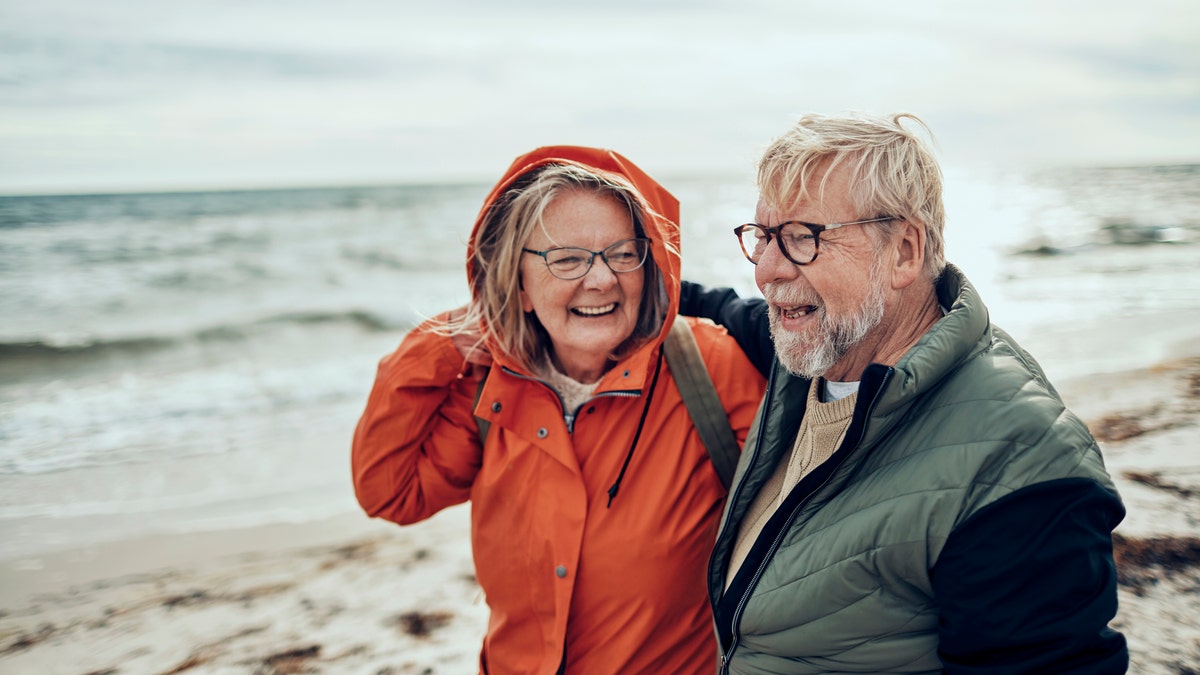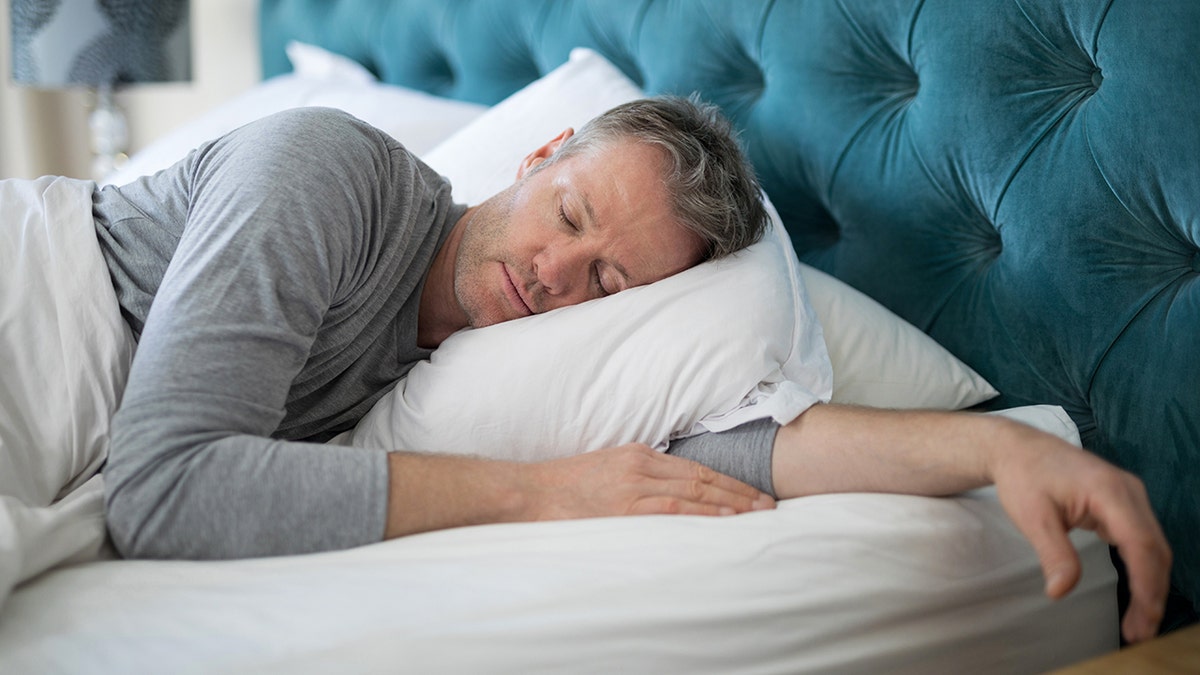Longevity experts say retirement may have negative health effects

According to the Social Security Bureau, although the “official” full retirement age in the United States is 67, the average age for Americans stops working at the age of 62.
But not everyone is retired – an AARP survey last year found that one in four of more than 50 people expect to never leave work.
Some experts who think retirement may actually be harmful to health say this may not be bad.
The secret of longevity in the world’s “blue area”
Florida-based writer, explorer and longevity expert Dan Buettner spent years studying the world’s “blue zone” where more people live in 100. In these areas, he said the concept of retirement does not exist.
An AARP survey last year found that one in four of more than 50 people expect to never leave work. (iStock)
“Instead of artificial punctuation between your useful life and your nurturing life, people in the blue area are powered by purpose for their lives,” he said in an interview with Fox News Digital.
While retirement is associated with reducing stress and more relaxation, Butner notes that when people retire, their chances of dying.
Research shows that regular supplements can help you live longer
“We don’t know if it’s because they’re becoming less active, or losing their sense of purpose, or losing social work, or having trouble when they go home,” he said.
“But the message is clear – the longer you can stay active physically and mentally, and contribute the talents you provide to the world, you will get a longer life.”

“It’s hard to be happy without a goal – it’s much easier when you know your purpose and passion.” (iStock)
One reason to highlight retirement is that many people don’t like their current job, said Dr. Kyle Elliott, a tech career coach and mental health expert in California.
“Professionals often see retirement as a evasion career, but rather consider retirement and consider finding happiness in your current job,” he told Fox News Digital.
“The longer you stay active physically and mentally, the more you will get rewards for a longer life.”
“If your current job doesn’t bring you satisfaction, it may be time to explore new opportunities,” he continued. “When people like their job, they are unlikely to reduce their retirement days, and their good feelings have a positive impact on their daily lives.”
The benefits of not retiring
According to Buettner, retirees are more likely to be lonely, have lower energy levels, and often “lose meaning.”
“Unless you really hate your work, the connection between longevity and not retirement is very important,” he said.

One expert said: “One of the worst things you can do for your health is to get out of touch with the people around you.” (iStock)
“Having meaningful work can give us the motivation to wake up in the morning, get rid of simple chairs, keep our brains interacting and keep the body moving – these are things that really extend our lives.”
Elliott echoes the importance of participation and activity as people age.
“One of the worst things you can do for your health is to get out of touch with the people around you,” he said. “Work provides a structured opportunity to continue socializing and have life goals.”
A woman, 107 years old, has some big secrets and lives a long and happy life
Buettner said having a consistent routine can also lead to health benefits — mainly when going to bed and waking up at the same time every day, which is more likely to happen on a work schedule.
“Sleep is the most important thing you can do for your overall health,” Buettner said.

“It’s hard to be happy without a goal – it’s much easier when you know your purpose and passion.” (iStock)
Elliott agrees that following daily activities can greatly benefit mental health and longevity.
“You want to focus on those activities that enhance your energy and well-being while eliminating those that consume energy and negatively affect your self-care,” he advises. “As you approach the age of retirement, this may look like a career change or a social circle adjustment.”
Two experts say having a sense of purpose is one of the biggest benefits of choosing not to retire.
World War II veterans over 100 years old reveal the secrets of a long and healthy life
“It’s hard to be happy without a goal – it’s much easier when you know your purpose and passion,” Elliott said.
“When you clearly drive yourself, you can use this clarity to motivate you during great times and provide resilience during difficult times.”

“If you continue to work, you can often take advantage of your employer’s health plan, which can delay access to Social Security benefits and you will get a bigger salary in the future,” says the longevity expert. (iStock)
Buettner cites the famous “Nun Study,” a longitudinal study of aging and Alzheimer’s disease that includes 678 nuns in Mankato, Minnesota, many of whom have lived for 100 years.
“Those who live the longest time articulate their sense of purpose, which is why they wake up very early,” Buettner said.
Click here to get the Fox News app
According to experts, people with strong purpose are more likely to stay healthy, eat nutritious foods, form healthy social relationships and take medications.
“A very good study shows that people who maintain a sense of purpose live about eight years longer than those without rudders.”

Having consistent routines, such as going to bed and waking up at the same time every day, can have health benefits. (iStock)
There are also financial benefits to retaining work.
“If you continue to work, you can often take advantage of the employer’s health plan, you can delay getting Social Security benefits and you will get a bigger salary in the future,” Buettner said. “Not only that, you will have more money to come on vacation.”
Different tastes of retirement
According to Buettner, retirement doesn’t have to be the same for everyone, nor does it have to be “all or nothing.”
“If you’re in an annoying job, you probably shouldn’t continue to do this for the grave, but instead find a job that aligns with your passion, and your strengths may be the best life you can make at any age,” he said.
Click here to sign up for our health newsletter
“If you do what you love every day, you are involved in your goals and your innate desire to contribute and are more likely to be happy.”
Statistically speaking, according to Buettner, the happiest people in the world work about 30 to 35 hours a week.
“If you do what you love every day, you are involved in your goals and your natural desire to contribute.”
“This leaves enough time to be active in sports, raise your family, spend time with friends and give back meaningfully,” he said. “That’s how we configure a life that not only helps you live longer, but can be better.”
Elliott agrees, noting that while expecting retirement is not necessarily a bad thing, finding a job that makes you feel fulfilled and keeps you mentally, physically and socially active as you age, is helpful, healthy.
For more health articles, please visit www.foxnews.com/health
“Retirement doesn’t necessarily mean leaving the workforce altogether – instead, it looks like engaging in new jobs, pursuing volunteer efforts, engaging in hobbies and even running a business,” he said.
“This transition can be a great opportunity to explore new interests and continue to live a deliberate life.”


